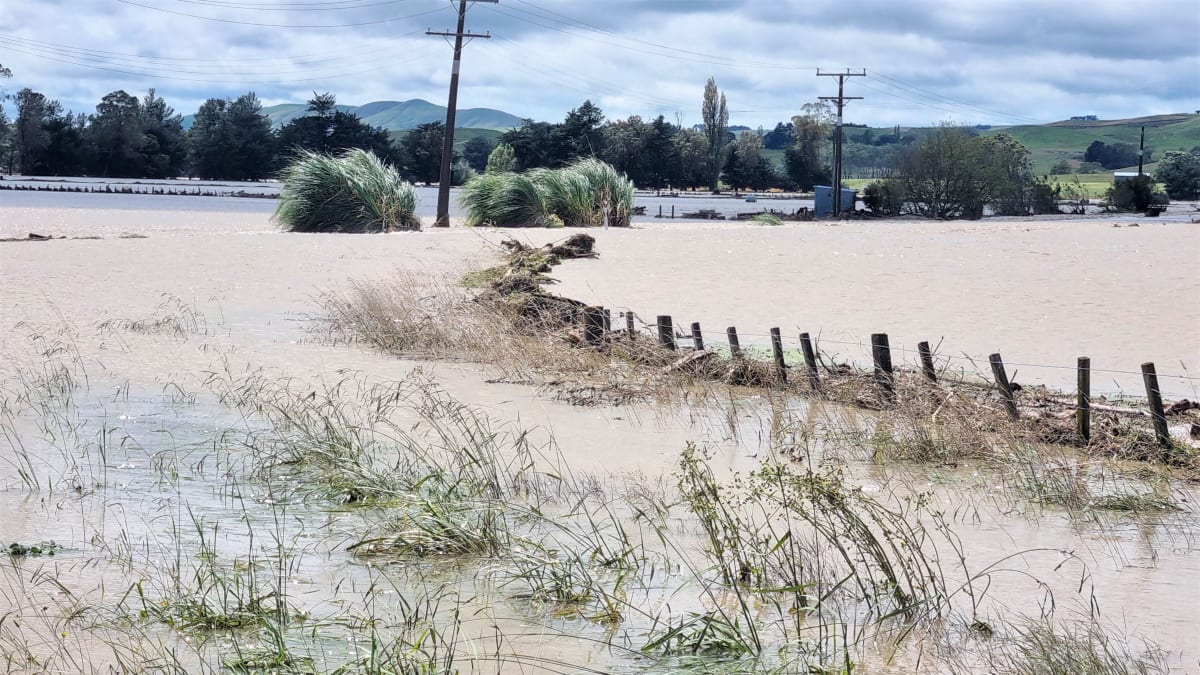
Central Hawkes Bay, overwhelmed and angry a month on from Cyclone Gabrielle, is feeling a warm glow from southern cuzzies
Much like in Central Otago, people in Central Hawkes Bay are pretty keen on hunting and drinking pinot.
Both 'Centrals' feature sheep farms and orchards and supply much of the country’s world-beating apple crop.
One thing, however, that Central Hawkes Bay doesn’t have in common with its new southern penpals is that its GPS co-ordinates put it in the zone for wayward cyclones from the South Pacific.
Following Cyclone Gabrielle the two districts were matched through a scheme thought up by Central Otago District Mayor Tim Cadogan. Cadogan says he and other southerners were keen to help but not sure how.
“It seemed so huge that it was hard to know where to begin. So breaking it down into manageable chunks seemed a good idea.”
The Adopt-a-Community scheme has now grown to include 35 councils nationwide, says Local Government New Zealand.
Central Otago locals are being encouraged to use that area’s mayoral relief fund to channel donations and fundraising efforts to Central Hawkes Bay.
Neighbouring Queenstown-Lakes District Council has also adopted Central Hawkes Bay and between the two tens of thousands of dollars have been channelled into the stricken area.
“Every little helps our North Island cuzzies. It’s going to take a long time for their land and communities to recover,” Glyn Lewers, mayor of Queenstown-Lakes, says.
At the receiving end, Alex Walker, the mayor of Central Hawkes Bay, says the funds are being distributed in a “high-trust” process overseen by staff and three councillors.
“Everything that is donated goes through to the people in our community.”
She says families, many of them already living from pay cheque to pay cheque, are using the money to buy groceries, replace household items destroyed by flooding, fund clean-ups and myriad other things that fall through the cracks of standard funding channels.
Walker says weeks on from the event, residents continue to be overwhelmed by the destruction and losses they face.
More than 600 homes were flooded, there is “deep damage” to much of the area’s 1200km of roading and enormous amounts of gravel has been dumped by floodwaters on rural properties.
She says there is comfort from a remarkable human response but also anger at why the damage was so bad.
“There’s anger about how systems may have let people down. Why did the stop banks break, why did stormwater drains overflow.
“Yes, everyone is safe and accounted for but this is going to be a long road to get through the grief, to get through the anger. What do we build back and what don’t we - we have to make some of those big decisions.”

The cyclone damaged more than 100 roads, cut water and power supplies and severed communications. Even some emergency services couldn’t initially be reached, Walker says, as the area was lashed by “extraordinary” amounts of rain and strong winds.
The area’s two main towns, Waipukurau with 4600 people and Waipawa with 2400, each have nearby rivers.
“The Waipawa River changed its route and burst its stop banks at a number of places taking out roads, bridges and farmland and ultimately came through half the town’s houses.”
With little time to spare, the call was made to evacuate the town.
“We evacuated 200 homes within about an hour and a half, just in the nick of time. Then the river came through the stop banks and ploughed right through that part of Waipawa.”
Waipukurau fared better but the tiny isolated township of Pōrangahau was right in the path of another river.
“It has about 100 houses, a marae and urupa, some shops and a garage - the river went right through. They had to self-evacuate.
“Pōrangahau’s volunteer fire brigade set up a co-ordination centre at the rugby clubrooms on the edge of town where they looked after everyone until the council could get there the next day.”
Also turning up were neighbouring landowners who left their damaged properties and rolled into town early the next morning.
“That first day farmers from the surrounding hill country drove into town on tractors and in trucks and trailers and got stuck in clearing up the village.”
Music to their ears
A video Walker was sent in recent days of an elderly Pōrangahau resident who had been reunited with a prized possession made her heart sing a little in the midst of the worry and sadness.
All the belongings of the kuia had been ruined by floodwaters but her pride and joy, a baby grand piano, had legs just tall enough to keep the workings dry. The woman, almost in her 90s, was evacuated to temporary accommodation but forced to leave the piano.
“When I went to visit the next day everything had been cleared out but the baby grand was still sitting there. Then this week I got a video from her daughter.
“Our kuia is living in a little self-contained cabin on a neighbouring property with a few others in cabins around her. The neighbours had gone and moved the piano.
“About 10 of them went in and picked it up and here it was on the deck outside her cabin.
“And here she was sitting playing it. The community spirit in Central Hawkes Bay has just been next level - above and beyond.”
A chunk of the donated funds has gone to the coastal Pōrangahau community for relief work.
Pōrangahau’s collective response is typical of the district and of visitors from other districts who have joined in.
“The community swung into action. And the volunteers just came out by the hundreds.
“That first week and weekend there was a huge amount done. It was a ‘whatever it takes’ scenario, particularly in the first 10 days.”
The council’s head of finance did laundry for people without water and farmers cleared slips and culverts to give access to emergency vehicles.
Individuals who mucked in provided a catalyst for shell-shocked homeowners to start on the recovery.
“If you have one person, even if you don’t know them, who says ‘how about we shovel out the driveway so we can at least back in a trailer’, a practical step like that, it helps get people moving.
"And then it turns into the bigger things like removing loads of rubbish and moving people out of their homes.”
A month on, boil water notices for Waipawa and Ōtāne have only just been lifted following repairs to an inundated treatment station. About 30 people are still cut off by damaged roads in the western ranges, however, and normality is a long way off yet.

People have lost loved ones in neighbouring districts and there have been crime worries. These activities were “nipped in the bud quite quickly” by police, Walker says.
“People at their most vulnerable were concerned about personal safety and what untrustworthy people were doing.
“Those communities have spoken loud and clear and police have mobilised into isolated parts of the region where people were feeling like that.”
Despite the challenges the district has been buoyed by the support including that from Central Otago and Queenstown-Lakes.
Investing in the future of the productive area is an “easy proposition”, Walker says.
“We have lots of opportunities for industry, for business, for people.”
The third-term mayor says she loves her community and is grateful for all the support.
“The support of Mayor Tim from Central Otago and from all around the country has been amazing. We have felt very loved.”
Made with the support of the Public Interest Journalism Fund








